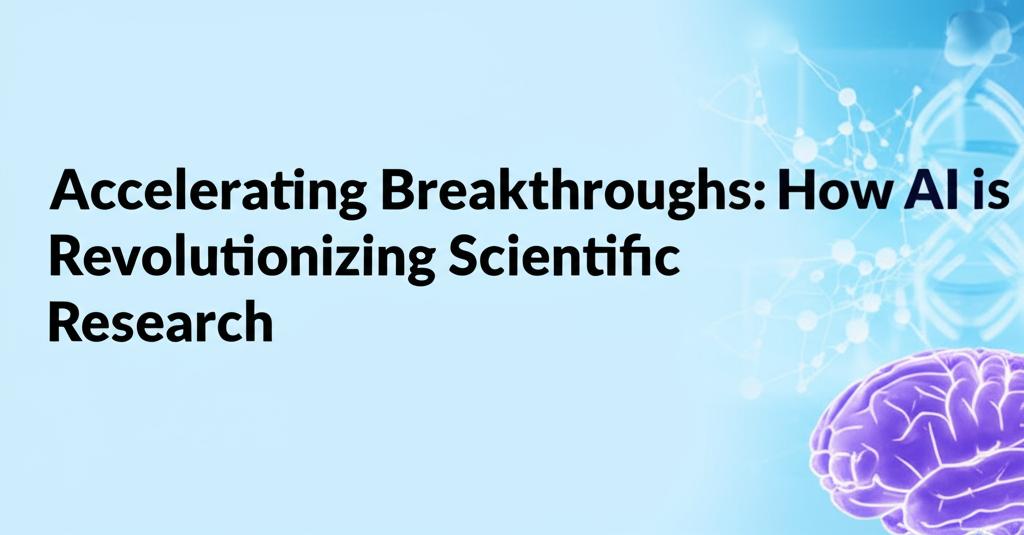Artificial Intelligence (AI) is no longer science fiction; it's rapidly becoming an indispensable tool in the scientific community, fundamentally changing how research is conducted and accelerating the pace of discovery across diverse fields.
Taming the Data Deluge
Modern science generates unprecedented volumes of data – from genomic sequences and particle accelerator outputs to astronomical surveys and climate simulations. Manually sifting through this data deluge is often impossible. AI, particularly machine learning algorithms, excels at:
- Pattern Recognition: Identifying subtle patterns, correlations, and anomalies within massive datasets that might elude human researchers.
- Data Analysis: Processing and analyzing complex data streams orders of magnitude faster than traditional methods.
- Image Analysis: Automating the analysis of scientific images, such as microscopy slides, telescope images, or medical scans, with high accuracy.
Smarter Hypothesis Generation and Experimentation
AI isn't just analyzing existing data; it's helping to guide future research directions.
- Predictive Modeling: AI can build models based on existing knowledge to predict the outcomes of experiments, helping researchers prioritize the most promising avenues.
- Hypothesis Generation: By analyzing vast amounts of scientific literature and data, AI can suggest novel hypotheses or identify previously unnoticed connections between different research areas.
- Experiment Design: AI tools can assist in designing more efficient and effective experiments, optimizing parameters and reducing the need for costly trial-and-error.
Revolutionizing Drug Discovery and Materials Science
Some of the most dramatic impacts of AI are seen in fields like medicine and materials science:
- Drug Discovery: AI significantly speeds up the identification of potential drug candidates by predicting molecular interactions, screening virtual libraries of compounds, and designing novel molecules with desired therapeutic properties. This drastically reduces the time and cost associated with bringing new medicines to market.
- Materials Science: AI algorithms can predict the properties of novel materials based on their atomic structure, guiding the discovery and design of materials with specific characteristics (e.g., stronger alloys, more efficient solar cells, better catalysts).
- Protein Folding: AI models like DeepMind's AlphaFold have achieved remarkable success in predicting the 3D structure of proteins from their amino acid sequences – a long-standing challenge in biology with profound implications for understanding disease and designing drugs.
Enhancing Simulations and Modeling
Complex natural phenomena often require sophisticated simulations. AI can:
- Accelerate Simulations: Augment or replace components of traditional simulations, making them run faster without sacrificing accuracy.
- Improve Model Accuracy: Help refine scientific models by learning complex parameter relationships from data.
- Enable New Simulations: Tackle simulations previously considered too computationally expensive.
The Human-AI Partnership
It's crucial to understand that AI is not replacing scientists but augmenting their capabilities. AI tools handle laborious data processing, identify hidden patterns, and suggest new paths, freeing up researchers to focus on critical thinking, creativity, interpretation, and asking the right questions. The future lies in a synergistic partnership between human intuition and AI's computational power.
While challenges remain – including data quality, model interpretability, ethical considerations, and ensuring equitable access – the trajectory is clear. AI is acting as a powerful catalyst, breaking down traditional barriers and accelerating the journey towards scientific breakthroughs that will shape our future.

